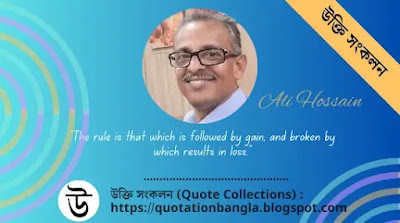Mahatma Gandhis quotes about life and death
Mahatma Gandhis quotes about life and death
“Live as if you were to die tomorrow, and learn as if you were to live forever.”
— Mahatma Gandhi
Read this Quote in Bengali
Know Source & Context of this Quote :
It's important to note that while the quote "Live as if you were to die tomorrow, learn as if you were to live forever" is widely attributed to Mahatma Gandhi, its exact origins are somewhat debated. Here's what I found:
Attribution to Gandhi:
The quote is very commonly associated with Mahatma Gandhi, and it reflects his philosophy of valuing both the present moment and continuous learning.
Rajmohan Gandhi, Mahatma Gandhi's grandson, has discussed his grandfather's views in a way that aligns with the sentiment of the quote.
Earlier Origins:
However, research indicates that similar sentiments can be found in earlier sources. For example:
There are similar sayings that can be found from Isidore of Seville.
Similar concepts are found in the Hadith.
This suggest that the idea expressed in the quote has existed through time, and that Gandhi made a very good version of it, that resonated with people.
Therefore, while Mahatma Gandhi popularized this sentiment and it aligns with his teachings, the core idea has roots in earlier philosophical and religious thought.
----------
Gandhi’s works, such as his autobiography *The Story of My Experiments with Truth* and his numerous articles in publications like *Young India* and *Harijan*, emphasize living with purpose and seeking wisdom. The first part, “Live as if you were to die tomorrow,” aligns with his teachings on detachment and urgency in doing good, while the second, “Learn as if you were to live forever,” reflects his belief in constant self-improvement and truth-seeking. Scholars and quote enthusiasts suggest it may have been coined by later admirers, blending his ideas into a succinct, memorable form.
Without a precise primary source, it’s likely an aphorism inspired by Gandhi’s broader philosophy rather than a direct quotation. Its widespread attribution to him stems from how well it encapsulates his approach to life. If you’re looking for a deeper dive into his original words, I could search for similar sentiments in his documented works—let me know!





Comments
Post a Comment